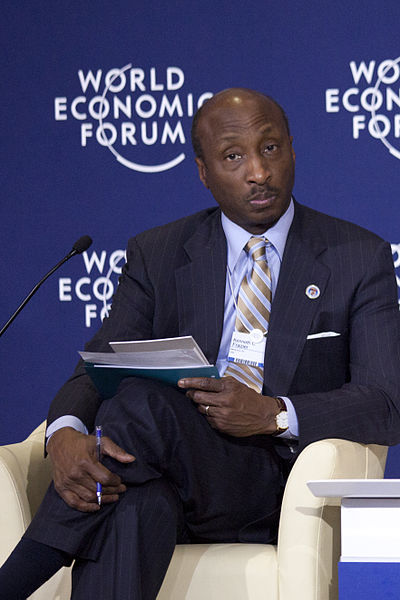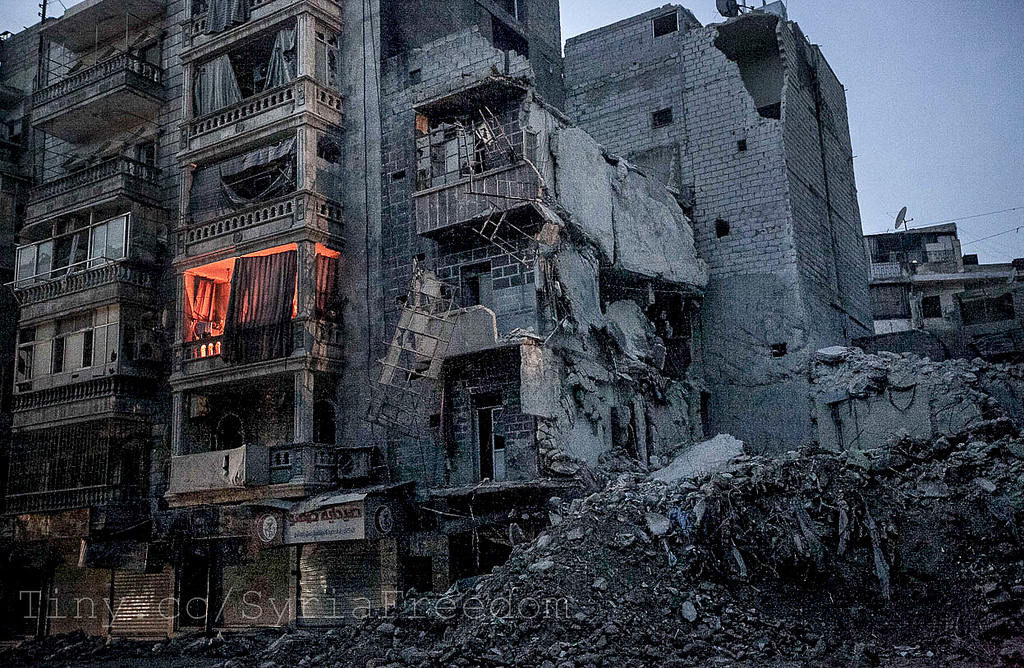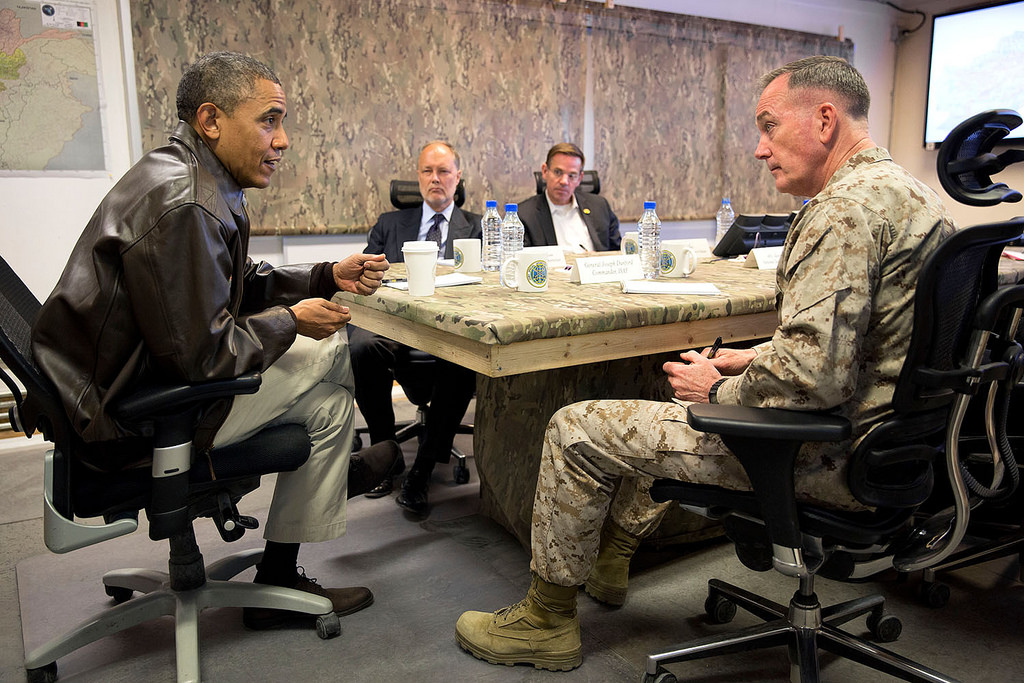
It has become increasingly clear that the civil war in Iraq will likely not have a military solution. Although Sunni militants easily grabbed territory north of Baghdad (where most Sunnis live), Middle East experts predict that they will not be able to take Baghdad or move much beyond the current Sunni-Shi’a geographic divide. Experts also predict that the Iraqi government (through the Iraqi Security Forces, or ISF) will not be able to push Sunni militants out of the territory they have already conquered unless Iran is willing to send lots of Iranian soldiers to help (something that it hasn’t been willing to do so far). The result is that we are likely to see the war stalemate along the Sunni-Shi’a border/boundary in or just north of Baghdad.
Wars that get stalemated tend to become long and bloody. They also tend to create incentives for the combatants to negotiate a deal since fighting to victory becomes excessively costly and uncertain.
This means that almost all of the parties fighting for political control of Iraq will eventually have an interest in negotiating a settlement. As I mentioned last week, a negotiated settlement is no one’s first-best outcome – everyone would prefer to win than to compromise with their enemy. But it’s an outcome that will become increasingly attractive to everyone as the costs and risks of war increase.
A negotiated settlement is also in the interest of the United States. The US cannot afford a long, bloody and destabilizing war in a country that borders Iran, Turkey, Syria, Jordan and Saudi Arabia. So we can expect that President Obama will pursue this outcome.
The question then becomes, is a negotiated settlement in Iraq realistic? The answer is yes.
Over the last 15 years scholars have collected and analyzed data on the 125 or so civil wars that have taken place since 1940 around the world. Four findings suggest that the outlook for a negotiated settlement in Iraq is not bad:
1. A military stalemate is likely to set in. One of the best predictors of whether combatants were willing to initiate serious negotiations was the presence of a military stalemate. If Sunni and Shi’a forces fight to a stalemate and neither gets a significant influx of military assistance from outsiders, we can expect both sides to make serious peace overtures.
2. Iraq now has relatively clear ethno-sectarian boundaries, and the fact that Kurds, Sunnis and Shi’a are already geographically separated will help. Civil war combatants are significantly more likely to sign a comprehensive peace agreement if it includes a territorial “pact”. A territorial pact could include a range of provisions such as regional autonomy, an allowance for all sides to continue to administer areas under their control, or the establishment of a specific self-governing zone. The Kurds already enjoy significant autonomy, which explains much of why they are not currently rebelling.
3. Nouri al-Maliki has proven that “sectarianism” will fail. Prime Minister al-Maliki ignored calls to establish an inclusive government with the Sunni population and he got civil war as a result. This sends a clear signal to his successor to be more accommodating. What does the scholarly evidence show? Not surprisingly, it also shows that combatants are more likely to sign and implement a negotiated settlement that includes a political “pact”. This could include guaranteed positions in a government at the level of cabinet or above, or a specific quota of power in at least one of the main branches of government.
4. Iraq might not need peacekeepers. In addition to political and territorial guarantees, the biggest predictor of whether a peace agreement will stick is whether a third party is willing to send peacekeepers to help verify or enforce implementation. Third parties play the important role of reassuring combatants that they will not be exploited by their enemy as they demobilize and prepare for peace.
At first glance, this bodes poorly for a negotiated settlement in Iraq since neither the UN nor any independent state is likely to offer such services. But once again, the existing geographic separation of Iraq’s three main ethno-sectarian groups may allow them to proceed on their own. If the Iraqi government agrees to a federal system where each of the main groups (Sunni, Shi’a and Kurds) is allowed to maintain significant autonomy including control of their own police or security forces, then each will be able to deter bad behavior by the other. The result would be a situation where the terms of the agreement would be self-enforcing over time by the groups themselves.
The United States has been pushing for a power sharing government in Iraq for years. It hasn’t worked because the Sunnis had no way to pressure al-Maliki to be more inclusive. That has changed. The increasing military strength of the Sunni minority means that they now have the power to force al-Maliki (or his successor) to the negotiating table, gain real concessions, and then enforce these concessions over time. The key to success, however, will not simply be to offer Sunnis positions in government and in the ISF. It will be to offer them real territorial autonomy buttressed by their own security forces. Only then will most Sunnis feel sufficiently safe to want to remain part of a single Iraqi state.







5 comments
Some external powers may wish to keep the conflict going. For instance, the success of ISIS cuts off Syria (Assad and Hezbollah) from Iran. The US and Israeli leadership are likely to see this situation as advantageous, whereas a settlement might return the situation to the status quo ante. And if they see the situation as advantageous, it will not be difficult for them to act in such a way as to continue it.
I’m not sure ISIS’ success in Iraq is as bad for the Assad regime as you argue. For one, the resources ISIS expends in Iraq are men and money not directed against Assad. And secondly, ISIS’ rise to prominence has captured attention in the West, highlights how dangerous the chaos of a post-Assad Syria would be, and makes funding and arming even moderate Syrian rebels much more difficult for Western politicians.